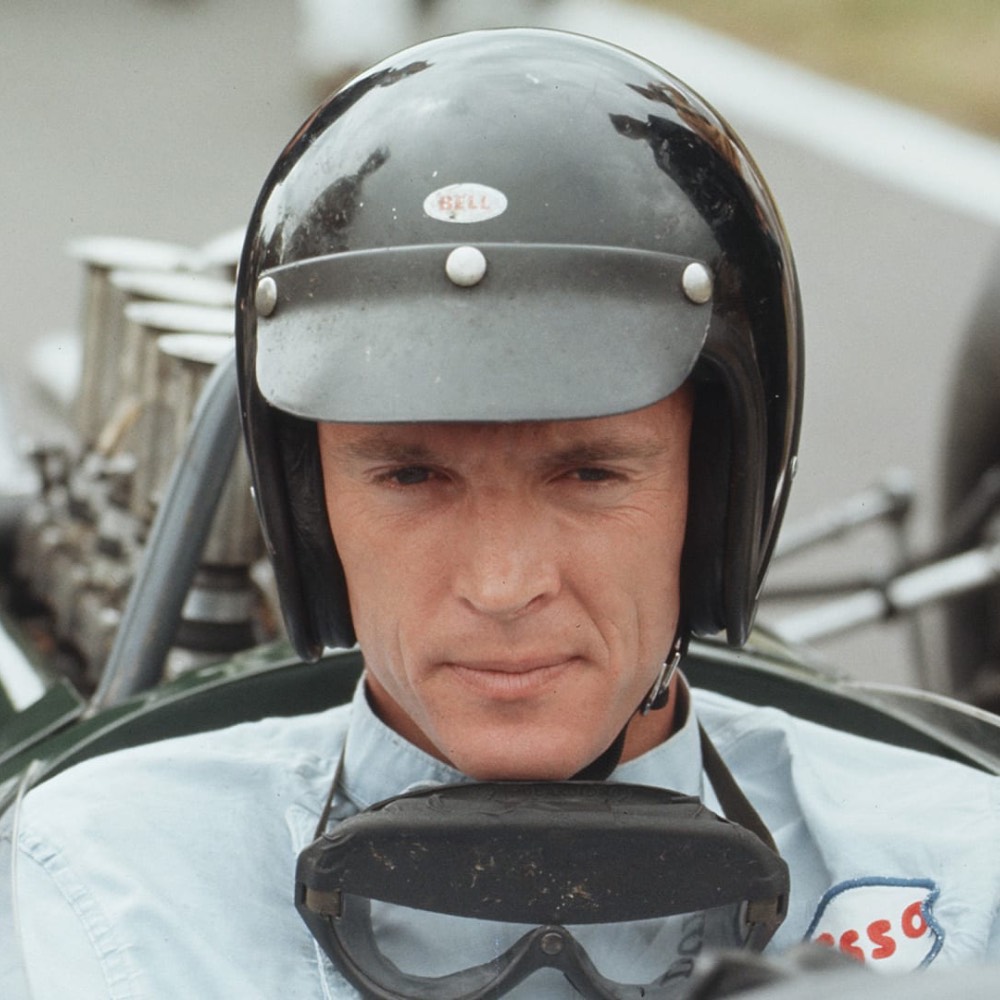
Dan Gurney
Career Statistics
Biography
Daniel Sexton Gurney (April 13, 1931 - January 14, 2018) was an American racing driver, engineer and motorsport executive who competed in Formula One from 1959 to 1970, widely regarded as one of the most influential figures in the history of motorsport. Born in Port Jefferson, Long Island, New York, Gurney was the son of bass-baritone John R. Gurney and grew up in a family of engineers. His racing career, which started with a Triumph TR2 in 1955, would span 15 years and encompass virtually every major form of motorsport competition.
Gurney's Formula One career began with Ferrari in 1959 after a test run impressed the Italian team. Over his 11-season Grand Prix career, he won four Formula One Grands Prix, racing for the most prestigious teams of his era: Ferrari, BRM, Porsche, Brabham, and later his own Eagle marque. Among American Formula One drivers, his 86 Grand Prix starts ranks third, and his total of four GP wins is second only to Mario Andretti. Remarkably, Gurney brought a maiden F1 win to three different teams: Porsche, Brabham (twice), and his own Eagle team.
His greatest achievement came at the 1967 Belgian Grand Prix at Spa-Francorchamps, where he won in his own Eagle-Weslake, becoming the only American in modern F1 history to win a Grand Prix in a car of his own construction—a feat matched by few in the sport's entire history. The Eagle was a stunning example of American engineering prowess, and though it won only once, it remains an iconic achievement in motorsport history. His best championship finish came in 1961 when he placed third overall driving for Porsche, though he consistently ran at the front throughout the mid-1960s.
Beyond his driving achievements, Gurney was a true Renaissance man of motorsport. He founded All American Racers (AAR) in 1964, which designed and built his Formula One Eagles as well as highly successful Indianapolis cars. His technical innovations were numerous, including the full-face helmet, the Gurney flap (a small tab on rear wings that increases downforce), and contributions to safety improvements throughout motorsport. He was the first driver to post wins in all four of the major fields of competition: Formula 1, IndyCar, NASCAR and sports cars—a versatility unmatched in his era.
In endurance racing, Gurney achieved remarkable success, winning the 24 Hours of Le Mans in 1967 with Ford GT40 co-driver A.J. Foyt, as well as the 12 Hours of Sebring in 1959 with Ferrari. At Le Mans in 1967, after stepping onto the podium, Gurney spontaneously celebrated by shaking and spraying his champagne bottle over the crowd—inadvertently creating what would become motorsport's most enduring victory tradition. His Le Mans victory was particularly sweet as it came in a Ford GT40 Mk IV, which he had helped develop.
Gurney's IndyCar career was equally impressive, with victories at the Indianapolis 500 (he never won but had multiple podiums) and numerous wins in USAC Championship racing. His Eagle-Offenhauser chassis dominated Indianapolis in 1968, with Bobby Unser winning the 500 in a Gurney-built car. In NASCAR, he competed sporadically but made his mark, including victories at Riverside International Raceway on the road course.
Perhaps the greatest testament to Gurney's stature came from an unlikely source. At the funeral of Jim Clark in 1968—Clark being widely considered the best driver of his generation if not all time—Clark's father took Gurney aside and confided that Dan was the only driver his son had ever truly feared on the track. This remarkable admission spoke volumes about Gurney's speed, skill, and the respect he commanded from his peers.
Despite never winning the Formula One World Championship, Gurney's influence on the sport extended far beyond race victories. His engineering mind, competitive spirit, and innovations changed motorsport forever. He retired from driving in 1970 but continued with All American Racers for decades, developing championship-winning Indy cars. Gurney passed away on January 14, 2018, at age 86, leaving behind a legacy as one of America's greatest racing drivers and one of motorsport's true pioneers. His contributions to driver safety, aerodynamics, and competitive spirit influenced generations of racers who followed.